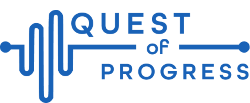

The deployment of the Internet of Things (IoT) in healthcare is transforming patient care and hospital management. However, this transformation comes with its share of challenges.
This article delves into the critical obstacles that healthcare organizations face in the adoption of IoT and offers strategic insights into overcoming these issues.
Understanding the Scope of IoT in Healthcare
IoT technology in healthcare encompasses a wide array of applications — from remote monitoring and wearable devices to smart hospital systems that optimize everything from inventory management to patient flow. The potential benefits are enormous, including enhanced patient outcomes, optimized therapy regimes, reduced costs, and more efficient use of resources. However, the integration of these technologies into the complex ecosystem of healthcare poses significant challenges.
Key Deployment Challenges
Interoperability and Compatibility
At the heart of the IoT deployment challenges in healthcare is the issue of interoperability. But what is interoperability in healthcare? It refers to the ability of different IoT devices and systems to connect and communicate effectively with each other and with existing healthcare information systems. This is crucial for ensuring seamless data flow and integrated patient care.
Interoperability involves not only hardware compatibility but also the standardization of data formats and protocols. Without this, data silos occur, leading to inefficiencies and increased chances of error. The concept of healthcare interoperability is vital for creating a cohesive healthcare environment where technology can truly enhance care delivery and operational management.
Data Security and Privacy
Another significant concern is ensuring the privacy and security of sensitive health data transmitted and stored by IoT devices. The healthcare sector is highly regulated regarding patient information security, governed by laws such as HIPAA in the United States. IoT deployments must adhere to these regulations while safeguarding against evolving cybersecurity threats, which requires robust encryption methods, secure data storage solutions, and continuous monitoring of data access and usage.
Scalability and Management
Healthcare facilities must be able to scale IoT solutions as needed while managing an increasing number of devices and data points. This requires substantial IT infrastructure and support to handle large volumes of high-velocity data. Additionally, the management of numerous IoT devices, ensuring they are all updated and maintained, adds another layer of complexity to operations.
Cost and ROI Concerns
The initial and ongoing costs of IoT implementation can be prohibitive for many healthcare organizations. There’s a need for a clear understanding of the return on investment (ROI) that IoT projects bring, as they often require substantial upfront investment in technology and training. Organizations must not only consider the direct costs but also evaluate the potential long-term savings and efficiency gains.
Strategies for Overcoming IoT Deployment Challenges
Develop and Adhere to Interoperability Standards
To address interoperability issues, healthcare organizations should prioritize IoT solutions that comply with established standards and protocols such as HL7, FHIR, or those set by the Continua Health Alliance. Participating in or forming alliances can also promote standardization across the industry.
Implement Robust Cybersecurity Measures
Adopting advanced cybersecurity measures is non-negotiable. This includes using end-to-end encryption, securing IoT devices from unauthorized access, and regularly updating software to protect against threats. Regular training and awareness programs for staff on the importance of data security are also essential.
Leverage Cloud Solutions for Scalability
Cloud computing can offer the scalability required for IoT in healthcare, facilitating the efficient management of data and devices. Cloud solutions can also help in reducing the cost of data storage and management, providing better analytics capabilities, and improving the overall agility of healthcare operations.
Conduct Comprehensive ROI Analysis
Before embarking on IoT projects, conduct a thorough ROI analysis to understand the economic impact. This analysis should consider both the direct and indirect benefits, such as improved patient outcomes, enhanced resource utilization, and potential increases in patient throughput.
Engage in Pilot Projects Before Full Deployment
Before a full-scale rollout, healthcare organizations should consider conducting pilot projects. These smaller, controlled implementations can help identify potential issues in system compatibility, workflow integration, and user acceptance. Pilot projects serve as an invaluable learning tool, providing insights that can be used to refine the full deployment strategy. They also help build a case for wider adoption across the organization by demonstrating practical benefits and allowing for adjustments before significant resources are committed.
Conclusion
The integration of IoT in healthcare is no small feat but addressing these challenges head-on with strategic planning and robust solutions can pave the way for a more connected and efficient healthcare system. As the industry continues to evolve, those who successfully manage the complexities of IoT deployment will be well-positioned to lead in the tech-driven healthcare landscape.
The post Addressing IoT Deployment Challenges in Healthcare appeared first on IoT Business News.


























